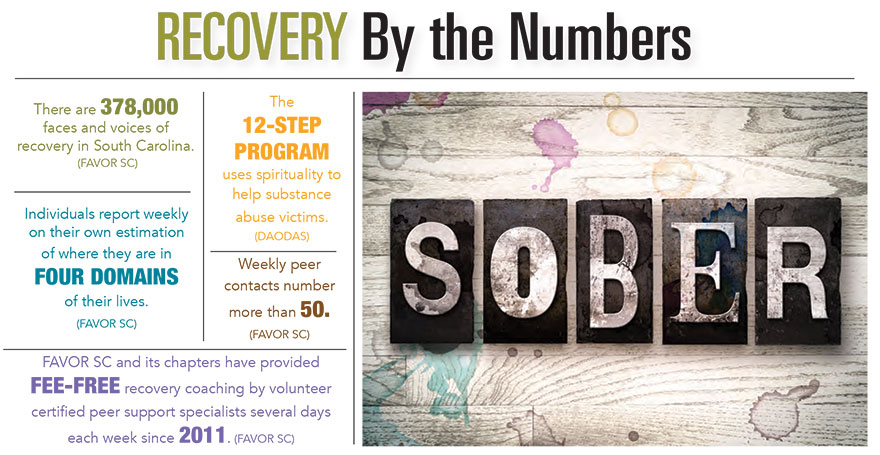Have you ever wondered what life is like for someone in a recovery facility?
What challenges do they face after treatment as they move back into their daily life?
What path do they take to get there?
There are as many approaches to recovery as there are stories of successful recovery treatments. Although it is true that most people will eventually relapse, those who are dedicated to the process believe it can be enhanced. More data and knowledge emerges daily, giving law enforcement, health professionals and recovery facilities the tools to overcome the problems that plague so many.
Despite the somber and downright tragic reports in the media, many people find powerful meaning through treatment in a recovery home.
So what is a recovery home? And what are the factors that determine whether someone will attain full recovery from addiction?
“Addicts usually have a trait of defiance. By encouraging that defiance and giving them the autonomy to direct their own destiny, they develop a sense of pride,” said David E., former housing representative for the Charleston chapter of Oxford House, Inc. “I’ve seen it time and time again. If you give someone handouts, you’re encouraging their disease.”
He went on to mention that one of the key elements in recovery is the same thing that may initiate the disease in the first place: peer pressure. At Oxford House in Charleston, residents are responsible for their own success. When there is an opening in the house, an entrance interview is necessary before a new resident can move in. Since there must be 80% approval, it’s in the best interest of current residents to let someone in who will encourage and help everyone else.
The process is different at other recovery homes, but they all seem to rest on common principles of long-term relationship building, encouragement of self-reliance and a mind-set of servant leadership.
When someone is in recovery, and especially once they move back into their daily life, they have hundreds of things running through their mind about the nature of their recovery.
“In many cases, they have huge medical bills and legal problems. They’re cut off from the people they love, no one trusts them and it’s hard to get a job because they’re addicts coming out of treatment. They are a few weeks out, they’re thinking about the stress of all of these things and many turn back to what they are trying to get away from. If they have someone else counting on them and are adopting a mind-set of service, they are far less likely to relapse,” David E. said.
It’s this passing of the baton that keeps people dedicated to the overall mission of recovery. Relationship building is a huge part of treatment and serves as a space for the benefits of self-reliance to thrive. When someone feels a sense of duty toward those who depend on them, reaching for the easy fix seems like a betrayal of themselves and everyone else.
Many veterans and experts of this process acknowledge that after five years of sobriety, the chance of a relapse decreases dramatically. As they see the gifts of service bearing fruit in their lives, the notion of going back becomes a betrayal of identity. They are no longer that person. They are a servant. They are a leader.
At times, during conversations with leaders of programs such as FAVOR (Faces and Voices of Recovery) of Greenville, you get a sense that recovery is more about building a meaningful life than about getting off drugs and alcohol. Recovery is a process that builds character and meaning that individuals can apply to all areas of their life.
Life after treatment is hard. If you can give someone meaning and direction, the challenge of long-term sobriety becomes an attainable goal – especially when surrounded by examples of sobriety.
“Peer pressure,” David E. reminded me. “It keeps people accountable.”
You really are the product of your environment – a microcosm of the people you spend your time with. Those who have been successfully treated know this better than anyone and often dedicate the rest of their lives in the service of helping others reach sobriety.
While recovery is a challenging path, fraught with temptation and peril at every turn, it’s an incredibly worthy path to trek and one that promises to give even more than what was lost in the pursuit of drugs and alcohol: a sense of purpose and meaning; community; and perhaps most importantly, a powerful sense of identity they have forged in the fires of hard work and dedication.
Faces And Voices Of Recovery: How Upstate Med Students Are Rebuilding Lives
“It isn’t about what you give up; it’s about what you get,” said Rich Jones, the high-energy CEO of FAVOR Greenville. “There is so much misinformation surrounding recovery. We’re changing that.”
Jones leads a first-of-its-kind recovery program in the Upstate that is challenging myths about addiction and recovery. Among the many programs FAVOR offers is a program that steps in at a crucial moment – when a patient has overdosed and is in the emergency room.
“Everyone thinks this generation lacks empathy and doesn’t want to help. The truth is the complete opposite,” he said, applauding the efforts of third-year medical students at the University of South Carolina School of Medicine Greenville.
FAVOR trains and then certifies students as recovery coaches.
“At first they are in a support role. We have coaches on call 24 hours a day to arrive within 30 minutes of a patient being checked into the ER. These students help with phone calls and follow-ups, being trained along the way so they can step into a volunteer role as a coach,” Jones explained.
The success of the program is astonishing. Placing a long-term relationship at the forefront of the process, 98% of patients agree to be connected with FAVOR services for 12 months, with 72% of them agreeing to being connected to rehab or higher recovery services.
FAVOR offers group sessions, family support, events, education and a wealth of knowledge to help people on their recovery journey. The average time a patient stays with FAVOR is nine months, although many remain connected for the full 12 months.
“We take a proactive approach in developing connections with patients. We’re not just here for a quick interaction. These are real relationships,” Jones said.
Having worked with more than 400 patients in this program alone, the program’s numbers are growing by the day. Jones’ energy and confidence in the program is infectious: “We believe this is the wave of the future.”
FAVOR provides an innovative response to the suffering caused by addiction for more than 5,000 new individuals in South Carolina Upstate each year – rebuilding lives, empowering families and changing the world.
To get connected with FAVOR, call 864-385-7757 or visit www.favorgreenville.org.
By James Crawford

